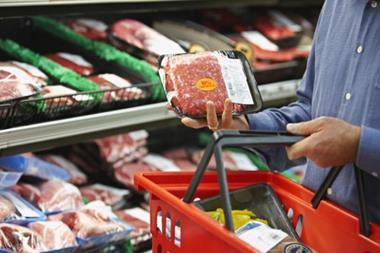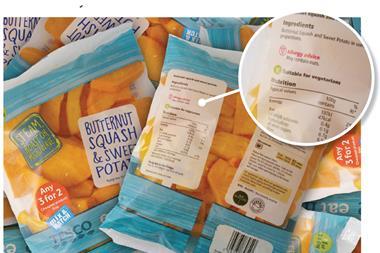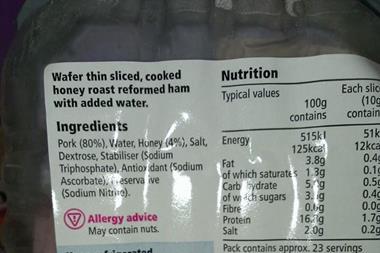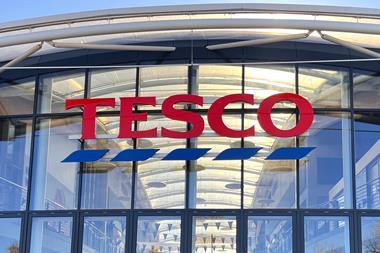Moronic”, “ignorant” and “discriminatory” are just three of the words used to describe Tesco over the past fortnight. Not by shareholders, but by irate parents of children with nut allergies.
They accuse Tesco of “dramatically altering its labelling policy” and “blanket labelling” products that don’t require ‘may contain nuts’ labels, to act as a “legal disclaimer” and to “avoid having to implement proper controls to ensure even staple items of food are safe”.
Their petition reads: “When baked beans, butternut squash, potatoes, fruit juice and more are suddenly labelled as potentially unsafe it is very disruptive, and leaves you with extremely limited options for feeding your family.” It currently has 14,494 signatories.
On the face of it, it is difficult to see how a potato could conceivably contain nuts. Yet Tesco insists it takes “great care to label our products with allergy advice where necessary,” and only displays warnings “when there is a risk of cross-contamination.”
So is the situation, as a poster on The Grocer’s website put it, a “cover-your-derriere-blanket-all-products-with-nut-warnings-so-we-cannot-be-sued” move? Or is Tesco simply ensuring that at-risk products are clearly labelled?
“We are parents of children with potentially life-threatening allergies and would not put them at risk,” says Alexa Baracaia, one of the parents supporting the petition. “But this is not the case with these items. For Tesco to claim otherwise is disingenuous. They have admitted to erroneously labelling ham and some juice, we believe they have erroneously labelled a great many more. No other supermarket is doing this. But the worry is that where Tesco lead, its suppliers will follow and the practice will become widespread.”
One supplier claiming to supply Tesco says there is “no excuse” for blanket labelling as the supermarket requires suppliers to complete “lengthy and in-depth” information “akin to War and Peace”. Tesco “should be able to clearly see where in the process there could be potential for cross-contamination.”
Yet frustrated parents remain in the dark. “If they really believe there is a risk then they should say exactly what those risks are,” adds Baracaia. “Their responses have been erratic, contradictory, often failing to answer specific questions and citing erroneous aspects of the EU regulations.”
The latter point refers to Tesco’s claim it has made the changes to comply with EU legislation 1169/2011, which covers allergy labelling and comes into force in December 2014. However, Hazel Gowland, who previously has advised Tesco on allergy labels and is an advisor to the Anaphylaxis Campaign charity, says the legislation has nothing to do with adding ‘may contain nuts’ but refers to the clarity and legibility of ingredients.
“I can’t see how this is related to 1169/2011 other than by providing the necessity to review all their labelling,” she says. “Tesco may say that having to print ingredients in larger text (required by 1169/2011) may leave less space for allergy warnings.”
As a result, Gowland says where Tesco labelling used to read ‘we haven’t got nuts in our factory but cannot promise that all our suppliers and their suppliers can say the same’ it “seems Tesco have decided to equate ‘cannot guarantee supply chain’ with ‘may contain’.”
In an effort to offer some clarity, the FSA has begun a study to establish whether all products carrying ‘may contain’ warnings in the UK actually do contain them. An FSA spokesman says “labelling such as ‘may contain’ should only be applied after a thorough risk assessment, and where there is real risk. We alerted Tesco to the concerns of some consumers and were advised they are reviewing their use of ‘may contain’ on specific products.”
Asked by The Grocer this week, Tesco insisted it had no new statement to make. However, in an email sent to Baracaia on Tuesday, Tesco confirmed it would be removing labels from more products. “Tesco Baked Beans are due to have the warning removed,” it read. “We are reviewing the whole Baked Bean range and the Tinned Pasta ranges to see where they can eliminate the risk and also remove the warning. This should all be completed within the next few weeks.”
“One by one we are getting there,” says Baracaia. “Plenty more to come.”



















No comments yet